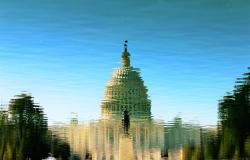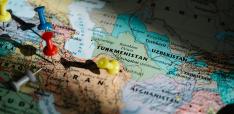Mobilising the homefront: Will cities in the US heed the State Department call and rally to support Washington’s foreign policy?

Seth Schindler and Kevin Ward examine recent efforts of the US State Department to encourage cities across the US to engage in ‘subnational diplomacy,’ and support Washington’s foreign policy objectives.
The US State Department recently announced a plan to station State Department officials in five cities across the US. The purpose of the Reta Jo Lewis Local Diplomat Program is to establish links between city governments and Washington. It embeds diplomats within municipal governments, where they will encourage local stakeholders to engage in “subnational diplomacy.”
This initiative is part of a broader effort by the Biden administration to rally US cities to support its foreign policy objectives. The Subnational Diplomacy Unit, established in 2022, is spearheading it. The Unit also launched the State-to-States Initiative, whose aim is “to bring the benefits of U.S. foreign policy — jobs, investments, connections, international experiences — to local communities while supporting the integration of local ideas and action into U.S. international engagement strategy.”
The Subnational Diplomacy Unit also convenes the Assembly of Local Leaders, which consists of 22 governors, mayors, and other stakeholders involved in sub-national politics. It serves as a forum for local stakeholders and State Department officials to identify areas where their interests align.
Chief among US foreign policy concerns is the return of great power rivalry. During the Trump administration China was identified “strategic competitor,” and the Biden administration left much of Trump’s policy towards China in place. There is a bi-partisan consensus in Washington that China poses a threat to US power, and the Department of State called for a “whole-of-nation” response to what it terms “the China challenge.” The Subnational Diplomacy Unit rallies cities to this effort.
This is not the first time the US Government has mobilized city governments to undertake subnational diplomacy in support of its foreign policy. At the height of the Cold War, the Eisenhower administration established Sister Cities International. It supported city-to-city connections and prioritized cultural and educational exchanges. While these initiatives fostered understanding across borders, they also allowed Washington to exercise soft power.
In recent years, cities and states have engaged in diplomacy of their own volition. Many cities have joined international city networks, which typically focus on a single issue, such as climate change, health, and transport. Perhaps the most high-profile of these is C40, a network of nearly 100 city mayors around the world, committed to addressing the climate crisis.
As municipal governments have increasingly pursued independent diplomatic initiatives, they have occasionally come into conflict with Washington. In one remarkable example, after Trump withdrew the US from the Paris Agreement on climate change, US cities participating in C40 committed to meeting its emissions targets. This raises the question, will US cities heed the State Department’s call to support Washington’s efforts to confront China?
Cities will be more likely to embrace Washington’s geostrategic objectives if they stand to benefit from Biden’s “foreign policy for the middle class.” This foreign policy is closely linked to the domestic objective of revitalizing American manufacturing. Central to this policy framework is a commitment to protect strategic sectors integral to national security from Chinese competition.
The Biden administration hopes to achieve all of this with a mixture of tariffs, export controls and subsidies. The Inflation Reduction Act and CHIPS and Science Act are central to this effort, and they are steering investment into deindustrialized cities that have experienced decades of decline. The 1990s and 2000s saw the decline of these once-prosperous cities, when manufacturing was rapidly offshored to China. Now, the hope in Washington is that they will spearhead a revitalization of American industry in hi-tech sectors like semiconductors.
One of the flagship investments of the CHIPS Act is an Intel semiconductor factory in Columbus, Ohio. When Intel announced the project, Ohio Senator Sherrod Brown exclaimed that it would generate “10,000 good-paying [sic], advanced manufacturing jobs,” and that “we are finally burying the term ‘rust belt.’”
This project will indeed create well-paying jobs in Columbus, but it is unlikely to reverse economic fortunes of cities across the rust belt. As the Editorial Board of the Detroit News made clear, cities and states are in a fierce competition to attract private investment and public subsidies in sectors like EV manufacturing and semiconductors. It laments that Governor Gretchen Whitmer’s efforts to attract semiconductor manufacturers to Michigan have been unsuccessful.
Many cities will not benefit from Biden’s industrial strategy and it stands-to-reason that their governments will be less likely to support his foreign policy objectives. Already, cities across the country have passed resolutions that are sharply critical of Biden’s unwavering support for Israel and demand an immediate ceasefire in Gaza. Additionally, many cities may benefit from closer ties with China. Cities and states across the US have entered into agreements with China. Most notably, California has entered into a series of agreements on climate change with the China’s central and provincial governments. Beijing has a longstanding policy of engaging state and city governments in the US, and is aware that there is friction between subnational governments and Washington.
To some commentators, contemporary great power rivalry constitutes a Second Cold War.
The State Department may find that cities whose economies depend on close ties to China are not particularly enthusiastic about participating in the Second Cold War, particularly if they do not stand to gain from the Biden administration’s industrial policy. What is clear, however, is that local politics are not insulated from geopolitics.
Residents in rural Michigan opposed to the construction of a factory that would produce components for lithium-ion batteries, have argued that its Chinese parent company poses a risk to national security. It is impossible to know if they are truly worried about a communist takeover of their town, or if old-fashioned NIMBYism motivates them. Nevertheless, the case highlights the potential trade-offs between national security and local economic development. Cities that attract investments and subsidies will be able to support US national security and grow the local economy, but other cities will face a stark choice between supporting Washington or local economic development. Will American citizens support a decades-long great power competition with China if it requires significant economic sacrifice? To find out, keep an eye on subnational diplomacy.
Seth Schindler is Professor of Urban Politics and Development at the University of Manchester. Kevin Ward is Professor of Human Geography at the University of Manchester. They are founding members of the Second Cold War Observatory.
Photo by Kendall Hoopes

